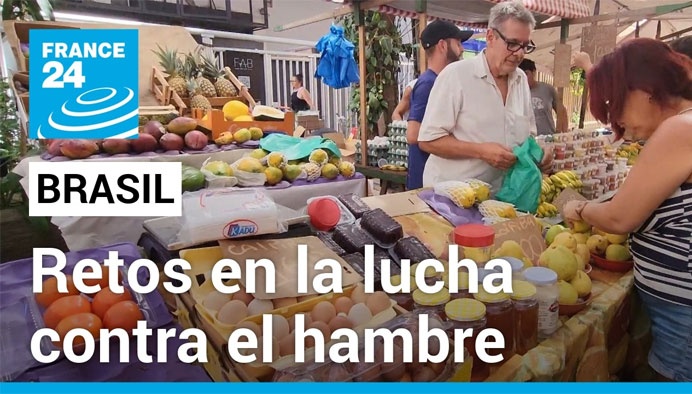
By María Josefina Arce
Thanks to the social programs implemented since 2003 by the governments of the Workers' Party, Brazil managed to get off the Hunger Map of the FAO, the United Nations Food and Agriculture Organization, 11 years later.
But the arrival in 2019 of the far-right Jair Bolsonaro to the presidency meant a setback. The policies aimed at eliminating this scourge were dismantled and the institutions in charge were dismantled.
As a result, the South American nation returned to the Hunger Map in 2022. It is estimated that in that year there were 33 million Brazilians in a situation of serious food insecurity and more than half of the population suffered from this problem to some degree.
Hence, upon assuming his third term in January of last year, Luiz Inácio Lula da Silva focused his attention on this problem and once again launched a program that includes 80 actions with the aim of once again removing the country from the world map. hunger and reduce poverty.
These actions include a significant increase in the minimum wage and the extension of Bolsa Familia, a program to distribute subsidies to people below the poverty line.
Despite the difficulties and the panorama encountered by the new government, results are beginning to be seen from this initiative, called "Brazil Without Hunger", which, appropriate to current conditions, is based on "Zero Hunger", implemented in 2003 under the first mandate of Lula da Silva.
Last year, the number of hungry and poor people was reduced. According to recent studies, the number of people in this situation decreased by more than 20 million, of which 12 million no longer suffered from what is called moderate food insecurity.
The recovery of the labor market has influenced this improvement. In 2023 unemployment stood at 7.8%, the lowest rate since 2014. Another factor is the 3% growth in the Gross Domestic Product and interest rates went from 13.75% to 10.75%, which Experts say it stimulates production and consumption.
There has also been a decrease in food prices, although this trend could be reversed for some products, according to economists, due to the strong floods registered in Río Grande Do Sur, a highly agricultural state that represents 70% of the rice production in the South American giant.
The statistics undoubtedly show that progress is being made, but still, as the authorities point out, there is a long way to go before we can reverse the panorama left by Bolsonaro, with the destruction of public policies on food security and social assistance.
President Lula da Silva has insisted that one of the priorities of his government is the fight against food insecurity, and in that direction, in favor of the most vulnerable, he works tirelessly.

